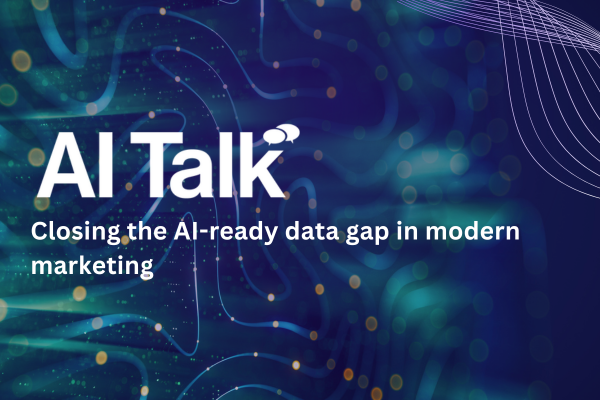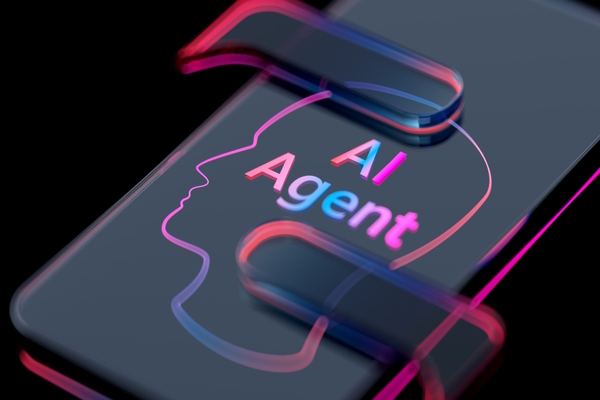How your AI-enabled enterprise is underusing your people – and what to do about it
Sponsored by RapidMinerPeter Lee, Chief Executive Officer at RapidMiner, and Andy Walter, Board & Strategic Advisor at RapidMiner and former SVP at P&G
Three out of four executives fear going out of business in the next five years if they don’t scale artificial intelligence (AI). Why? Because of the revolutionary impact AI can have on enterprises. Not only can AI help increase revenue, reduce costs and better manage risk, it can also improve everyday processes and operations to turn your organisation into an efficiency machine.
Many enterprises are already leveraging AI, but often they don’t realise they could be making an even bigger impact if they took advantage of the secret weapon they already have in place – their people. We covered this topic in depth in a recent video interview with Peter Lee, President and Chief Executive Officer at RapidMiner, and Andy Walter, Board & Strategic Advisor at RapidMiner and former SVP at P&G.
How enterprises are underutilising their people
Most businesses don’t prioritize data literacy for everyone, meaning that data skills are only expected of data experts. However, enterprises have a wealth of expertise across the organisation – from IT to marketing to warehouse workers, who all know their area of the business like the back of their hand. Organisations aren’t currently connecting that invaluable business context with data expertise, which is a huge missed opportunity.
Additionally, siloed business functions don’t leave much room to effectively use analytics – there’s no easy way to collaborate. These silos are enforced by organisations choosing to either outsource their data science projects to expensive consultants or hire additional, separated data scientists internally. Both these approaches are short-term solutions at best and leave so much internal talent to waste.
Three strategies for effectively leveraging your people and data
Upskill your talent
Analytics is a team sport, and existing employees (for example, domain experts in different business units) already understand the business context behind the problem data science initiatives are trying to solve. Team members who don’t necessarily have the word “data” in their title can benefit from learning about how to apply data science to their everyday work, while data science experts benefit from understanding the broader business context they’re working to solve.
Executive sponsorship is vital to encourage, and set up a framework for, continuous collaboration. Not only will upskilling existing employees remove the need for recruiting new talent in a fiercely competitive market, but it will also make existing staff feel more valued and appreciated. According to a survey by Tableau and Forrester Research, 80 per cent of employees are more likely to stay at companies that provide them with the data skills they need.
Demonstrate the value of AI
Some employees might be initially sceptical about how artificial intelligence will impact their jobs, and thus what their involvement in AI initiatives will look like. Demonstrating the value of artificial intelligence to employees across the broader organisation shows them how AI can add value to their own work, resulting in increased enthusiasm and buy-in.
Employees can get hands-on experience with AI, produce real results, and start to build AI into the organisation’s cultural foundation. This will lead to increased exposure to data science, greater data literacy and, of course, more valuable results.
Implement the right tools
The final ingredient in ensuring organisations can maximise the potential of AI is having the right tools and resources in place. A multi-persona data science platform – such as RapidMiner –empowers cross-functional employees to execute data science projects and generate real, AI-driven business value on their own.
With a multi-persona tool, anyone in the organisation, regardless of experience, can use AI to automate processes, build new apps and create predictive models. Platforms such as RapidMiner provide a central hub for organisations to collaborate and communicate across all current data science projects too, bringing previously siloed team members closer together.
The message to organisations is clear: now is the time to leverage your in-house talent to deliver on the promise of AI. By teaching your employees new skills, showing them the positive impacts data science will have on their everyday work, and providing them with the tools they need to be successful, you’ll not only break down damaging organisational silos, but you’ll also create a data-centric workplace culture. In the words of Miro Kazakoff, Senior Lecturer at MIT Sloan School of Management, “In a world of more data, the companies with more data-literate people are the ones that are going to win.”
Read more about the critical aspects of creating a successful enterprise AI strategy. Or, learn more about RapidMiner’s fully transparent, end-to-end data science platform for enterprise.

Business Reporter Team
Most Viewed
Winston House, 3rd Floor, Units 306-309, 2-4 Dollis Park, London, N3 1HF
23-29 Hendon Lane, London, N3 1RT
020 8349 4363
© 2025, Lyonsdown Limited. Business Reporter® is a registered trademark of Lyonsdown Ltd. VAT registration number: 830519543





